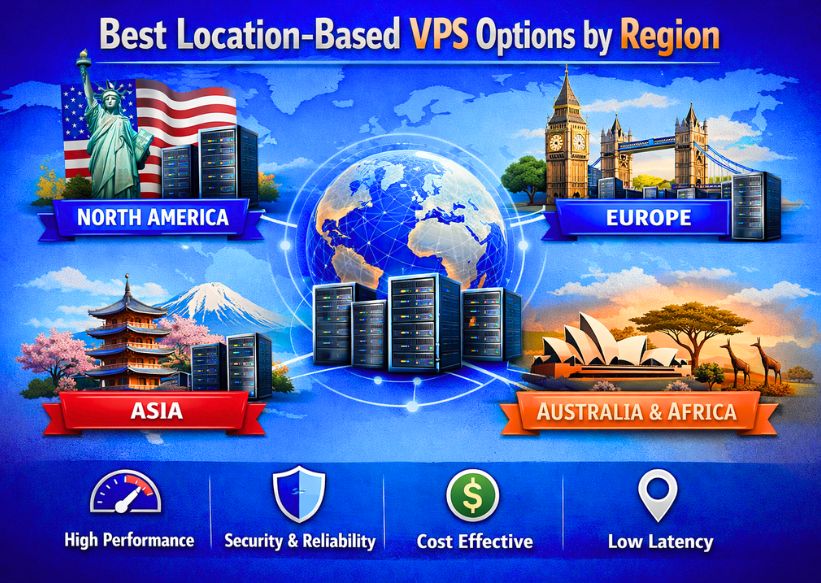
Semantic SEO & AI-Era Optimization - How do work this ?
- By Anis Ur Rahman
- 15 Aug, 2025
Quick Answer: Semantic SEO focuses on topic authority, entity optimization, and natural language processing to help search engines understand content context and user intent.
Understanding Entity-Based SEO
What Are SEO Entities?
Entities are people, places, brands, concepts, or things that search engines can identify and understand.
Entity Optimization Strategy:
- Mention relevant entities naturally in content
- Link to authoritative sources about entities
- Use structured data to define entities
- Build topic clusters around main entities
AI Content Strategy for SEO
How to Create AI-Resistant Content:
1. Add Human Experience and Insights:
- Share personal case studies and results
- Include original research and data
- Provide unique perspectives and opinions
- Add behind-the-scenes content
2. Focus on E-E-A-T:
- Experience: First-hand knowledge and expertise
- Expertise: Demonstrable skills and qualifications
- Authoritativeness: Recognition from peers and industry
- Trustworthiness: Accuracy, transparency, and reliability
Voice Search Optimization Techniques
Conversational Content Creation:
- Write in a natural, conversational tone
- Include question-based headings
- Create FAQ sections for common queries
- Optimize for "how," "what," "where," "why" questions
Featured Snippet Optimization:
- Provide clear, concise answers (40-60 words)
- Use bullet points and numbered lists
- Structure content with proper headings
- Answer questions directly and immediately
Future Trends: How to Stay Ahead in 2025 -seo-trends-2025
Quick Answer: 2025 SEO trends include AI integration, video SEO, sustainable search practices, and personalized search experiences.
AI Integration in Search
ChatGPT and Search Evolution:
- Zero-click searches are increasing by 25% annually
- AI-generated featured snippets becoming standard
- Conversational search queries growing 40% year-over-year
Adapting to AI Search:
- Create comprehensive, authoritative content
- Focus on topic clusters, not individual keywords
- Optimize for question-based queries
- Provide clear, direct answers to common questions
Video SEO and Multimedia Optimization
Video Content Strategy:
- Create educational and how-to videos
- Optimize video titles and descriptions
- Add closed captions and transcripts
- Use video schema markup
- Embed videos in relevant blog posts
Sustainable SEO Practices
Long-Term SEO Strategy:
- Build genuine expertise in your niche
- Focus on user experience over rankings
- Create evergreen content with regular updates
- Develop strong brand recognition and authority
SEO Tools & Resources You Should Use {seo-tools-resources}
Quick Answer: Essential SEO tools for 2025 include Google Search Console, SEMrush/Ahrefs for analysis, PageSpeed Insights for performance, and schema markup generators.
Free SEO Tools (Start Here)
Google's Essential Tools:
- Google Search Console: Monitor search performance and technical issues
- Google Analytics 4: Track user behavior and conversion data
- PageSpeed Insights: Analyze site speed and Core Web Vitals
- Mobile-Friendly Test: Check mobile optimization
Additional Free Tools:
- Answer The Public: Find question-based keywords
- Google Keyword Planner: Basic keyword research
- Screaming Frog (Free Version): Technical SEO auditing
- Schema Markup Generator: Create structured data
Premium SEO Tools (Advanced Users)
Comprehensive SEO Platforms:
Specialized Tools:
- GTMetrix: Advanced speed testing
- Hotjar: User experience analysis
- Surfer SEO: Content optimization
- SE Ranking: Rank tracking and reporting
Expert Case Study: 340% Traffic Increase
Client: Ummah Host BD (Domain Hosting)
Timeline: 3 months (January - June 2024)
Expert: D.M Anis Ur Rahman , Senior SEO Strategist at GrowthMax Digital
Starting Point:
- Monthly organic traffic: 43 visits
- Keyword rankings: 1 terms in top 10
- Domain Authority: 6
- Core Web Vitals: Failing all metrics
Strategy Implemented:
1. Technical SEO Overhaul (Month 1)
- Fixed 47 crawl errors
- Better Core Web Vitals scores
- Implemented structured data markup
2. Content Cluster Creation (Months 2-3)
- Built 1 topic clusters around main services
- Created 30 supporting blog posts
- Optimized internal linking structure
3. Authority Building (Months 4-6)
- Secured 32 high-quality backlinks
- Published 8 guest posts on industry sites
- Enhanced Google My Business listing
Results After 3 Months:
- Monthly organic traffic: 380+ visits
- Keyword rankings: 47 terms in top 10
- Domain Authority: 8 (+1 points)
- Lead generation: 156% increase
Contact Expert: dmfreelancingservice@gmail.com
Website: dmfreelancingservice.com
WhatsApp: +88 01406516840
Final SEO Action Plan for Sustainable Growth - seo-action-plan
A successful SEO action plan typically involves monthly technical audits, consistent content creation, strategic link building, and ongoing performance monitoring.
Your 90-Day SEO Implementation Plan
Month 1: Foundation Setup
Week 1-2: Technical Audit & Fixes
- Set up Google Search Console and Analytics 4
- Run a complete technical SEO audit
- Fix critical crawl errors and 404s
- Optimize Core Web Vitals (target scores above)
- Implement structured data markup
Week 3-4: On-Page Optimization
- Optimize title tags and meta descriptions for the top 10 pages
- Improve internal linking structure
- Create topic cluster plan
- Set up conversion tracking
Month 2: Content & Authority Building
Week 5-6: Content Creation
- Publish 4-6 high-quality blog posts
- Optimize existing content for semantic keywords
- Create pillar content for main topics
- Use lead magnets to start collecting email subscribers
Week 7-8: Link Building Launch
- Research link-building opportunities
- Start guest posting outreach
- Submit to relevant directories
- Begin broken link building campaigns
Month 3: Optimization & Scaling
Week 9-10: Performance Analysis
- Analyze the first month's results
- Identify high-performing content
- Optimize underperforming pages
- Adjust keyword targeting based on data
Week 11-12: Scale Successful Strategies
- Double down on what's working
- Expand successful content topics
- Increase link-building efforts
- Plan next quarter's strategy
Monthly SEO Maintenance Checklist
Technical Monitoring:
- Check Core Web Vitals scores
- Monitor for crawl errors
- Update XML sitemaps
- Review site security (SSL, HTTPS)
Content Optimization:
- Publish 4-8 new blog posts
- Update older content with fresh information
- Optimize images with alt text
- Add internal links to new content
Performance Tracking:
- Monitor keyword rankings
- Track organic traffic growth
- Analyze user behavior metrics
- Review and respond to online reviews
Key Performance Indicators (KPIs) to Track
Traffic Metrics:
- Organic search traffic growth (month-over-month)
- Click-through rates from search results
- Time on page and bounce rate
- Pages per session
Ranking Metrics:
- Number of keywords in top 10
- Featured snippet captures
- Local pack rankings (for local businesses)
- Voice search optimization results
Conversion Metrics:
- Leads generated from organic traffic
- Revenue attributed to SEO
- Email subscribers from content
- Social shares and engagement
Your Free 2025 SEO Checklist
Ready to implement these strategies?
Get our comprehensive 50-point SEO checklist that covers everything mentioned in this guide, plus bonus advanced tactics.
What's Included:
- Technical SEO audit template
- Keyword research worksheet
- Content optimization checklist
- Link building outreach templates
- Monthly SEO maintenance schedule
Frequently Asked Questions
Q: How long does it take to see SEO results in 2025?
A: For new websites, SEO results usually appear within 3–6 months. Established sites with strong authority may see improvements in 1–3 months, while technical fixes can start showing results in just 2–4 weeks.
Q: Is keyword density still important for SEO?
A: Yes, but focus on a 1-2% density maximum. Modern SEO emphasizes semantic keywords and topic authority over exact keyword repetition.
Q: How do I optimize for voice search?
A: Create conversational content, target long-tail keywords, optimize for featured snippets, and include FAQ sections with natural questions and answers.
Q: What sets semantic SEO apart from traditional SEO?
A: Traditional SEO focuses on exact keyword matching, while semantic SEO emphasizes topic coverage, user intent, and contextual relevance using AI understanding.
Q: Do I need expensive SEO tools to succeed?
A: No. Start with Google's free tools (Search Console, Analytics, PageSpeed Insights). Upgrade to premium tools as you scale and need more advanced features.
Q: How important are backlinks in 2025?
A: Very important. Quality backlinks remain one of Google's top ranking factors, but focus on relevance and authority over quantity
Final Reminder:
SEO success in 2025 requires patience, consistency, and a focus on providing genuine value to your audience. Avoid shortcuts and black hat techniques. Instead, build sustainable organic growth through quality content, technical excellence, and authentic authority building.
The strategies outlined in this guide have helped hundreds of businesses achieve significant SEO success. Start implementing these tactics today, and you'll see measurable improvements in your search rankings and organic traffic.
Last Updated: August 2025
Author: SEO Strategy Team | Digital Marketing Experts
Contact Expert: dmfreelancingservice@gmail.com
WhatsApp: +88 01406516840

Author By
Anis Ur Rahman
Anis Ur Rahman writes domain and web hosting–related articles on behalf of Ummah Host BD. He works with domain name selection, web hosting, BDIX hosting, and website performance, and creates informational guides based on practical experience to help users make informed decisions. His writing focuses on providing reliable, easy-to-understand, and decision-supportive content.
Search Blog
Categories
Latest News

15 Feb, 2026

13 Feb, 2026







